CAMRA Hosts 7th Annual Screening Scholarship Media Festival
This year's theme was “Rendering Matters of Concern and the Present Histories.”
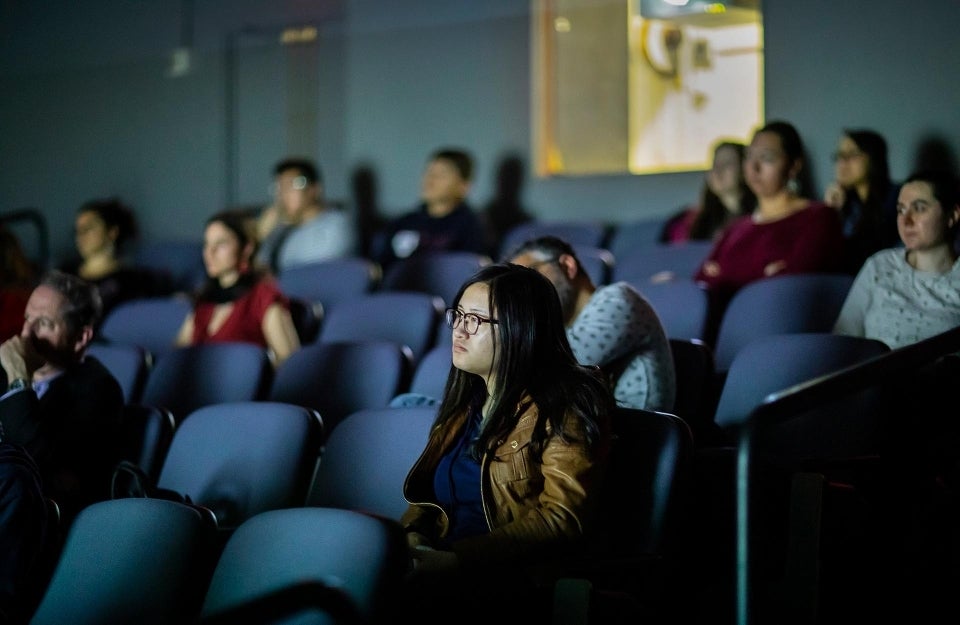
Photo Credit: Eric Sucar
By having a word like collective… by saying that, you join as part of that collectivity.
—Kate Zambon (Ph.D. ’18)
In late March, the Collective for Advancing Multimodal Research Arts (CAMRA) hosted its 7th Annual Screening Scholarship Media Festival (SSMF). Since 2013, SSMF has been a collaborative space that explores the affordances and challenges of multimodal strategies in research, and interrogates their social implications. The theme of this year, “Rendering Matters of Concern and the Present Histories,” gathered media works developed by scholars, educators, activists and artists working with indigenous people, persons under any form of detention, diasporic communities, LGBTQ+ collectives, and environments in conflict.
Students, scholars, artists, and media-makers from Colombia, Portugal, Finland, Canada and the United States attended and participated in this year’s festival. With twenty sessions spanning three days, attendees were able to watch films, participate in scholarly discussions, experience immersive installations, and listen to live musical performances.
SSMF kicked off with a Friday evening screening of the film Screening from Within, a film about outdoor screenings in rural China and the cultural work done by projectionists by University of Toronto historian Thomas Lahusen. The film sparked a discussion between Lahusen and Dean John L. Jackson, Jr. about how film can be used to concretize understandings of the pathways ahead of us, pathways behind us, and the pathways within us.
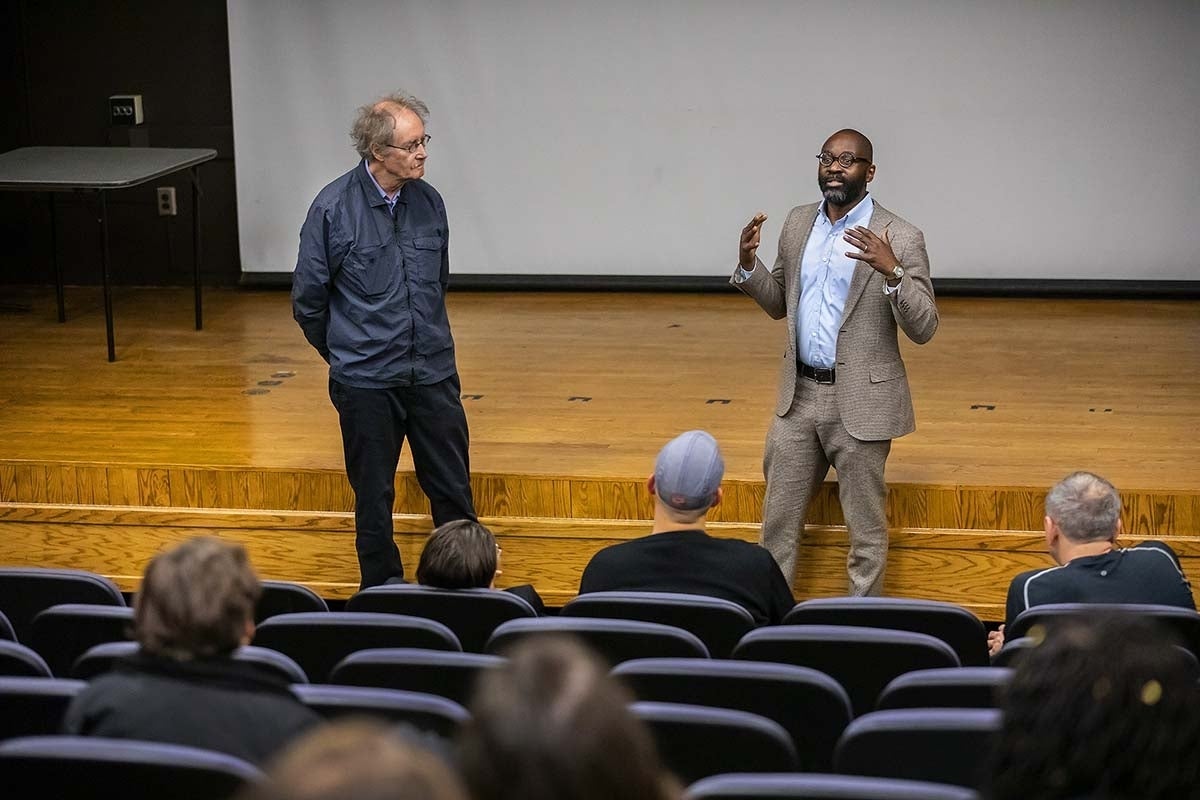
After the screening, Aimee Cox, the visiting fellow at Penn’s Center for Experimental Ethnography (CEE), and her colleagues Saya Woolfalk and Daniel Alexander Jones, engaged the audience in an interactive movement experience. Their ritual-performance transformed the Rainey Auditorium into a scene in which attendees were singing and clapping folk songs from the African American church tradition. Then all attendees left the room on a parade towards the Mosaic Hall guided by Aimee Cox’ astonishing dance movements and meaningful poetry. The ritual-performance reminded the audience about the transformative power and the healing capacity of each human being.
Cox and her colleagues encouraged the audience to consider how we can create our own paths through our connection with others — rather than in spite of them — and how we can transform the spaces around us while acknowledging that we do not have full control of these spaces.
On Saturday, scholars, artists, and activists using multimodal methods shared stories, lessons, and questions at the center of their work, and built coalition around issues of migration, marginalization, sovereignty, and sustainability. One of the highlights of the day was the Undergraduate Multimodality session, in which students presented their podcasts, visual ethnographies, and other creative works.

The programing on Saturday included an outdoor iPad performance of experimental music, an immersive 7.1 cinema surround film about bird songs in New Guinea, a keynote session exploring the relations between filmmaking, law, anthropology and the call for a more experimental and multimodal way of doing research within the humanities. Finally, David Chavannes, a Ph.D. candidate in Ethnomusicology/Africana Studies, and Nathalie Cerin closed the schedule with an incredible concert performed at the Rose Recital Hall co-sponsored by the Penn Music Department.
For years SSMF has brought junior, mid-level, and senior researchers and practitioners together to build support networks and lasting partnerships.
This year also saw the first-ever CAMRA Alumni Panel, two of whom were Annenberg alumnae. Kate Zambon (Ph.D. '18), an assistant professor of Communication at the University of New Hampshire, and Sandra Ristovska (Ph.D. ’17), an assistant professor of Media Studies at the University of Colorado Boulder, joined several other CAMRA co-founders and Penn alumni, who were excited to be back on campus and see the growth of both CAMRA and SSMF.
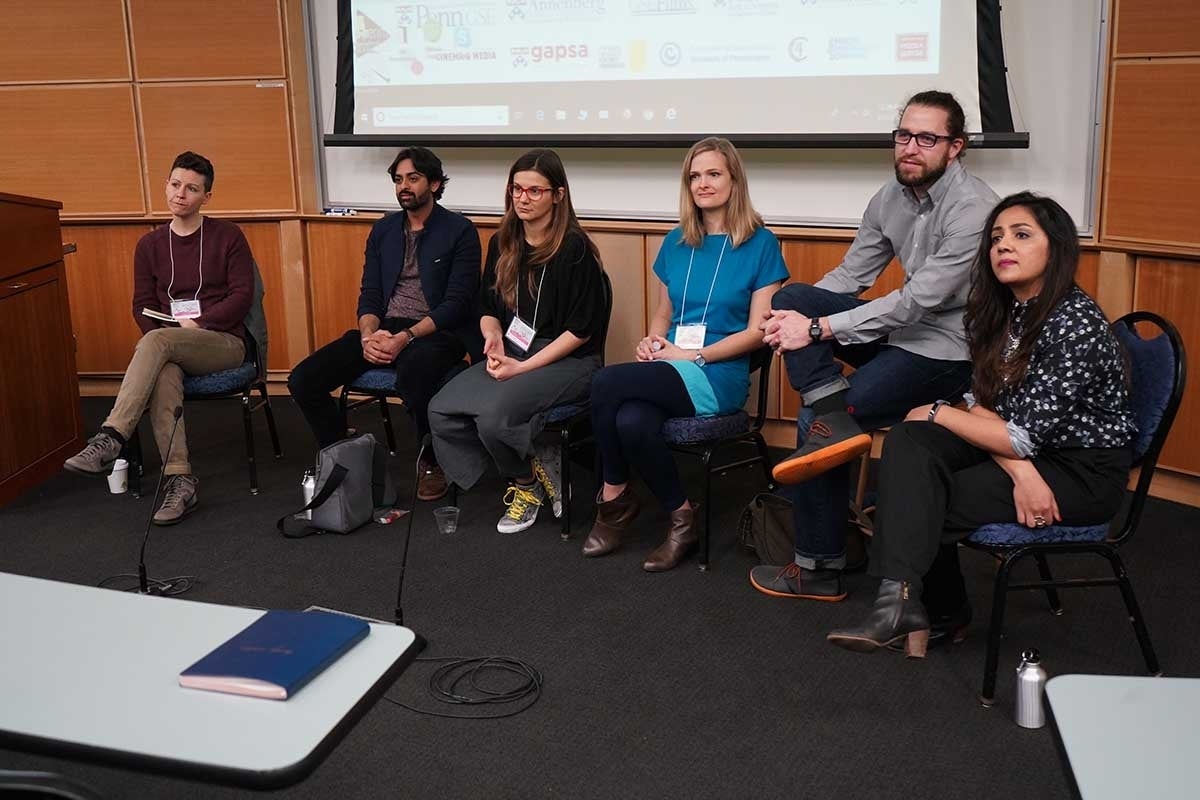
One of the cornerstones of SSMF is showcasing works by local artists and connecting community initiatives. Several of the projects featured were collaborations with Scribe Video Center, including Iliana Pagán-Teitelbam’s Twin Tongues developed in the Film Scholars Program, as well as Catalina Jordan Alvarez’s MUÑE and Gabriela Watson-Burkett’s Baobab Flowers, both supported by the Finishing Fund grant.
Several radio, podcast, and virtual reality projects were on display in the Annenberg Forum space, including productions by CMP Radio of Chester, Pennsylvania, the Media & Social Change Lab (MASCLab) at Teacher’s College of Columbia University, and Philadelphia’s public access station, PhillyCAM.
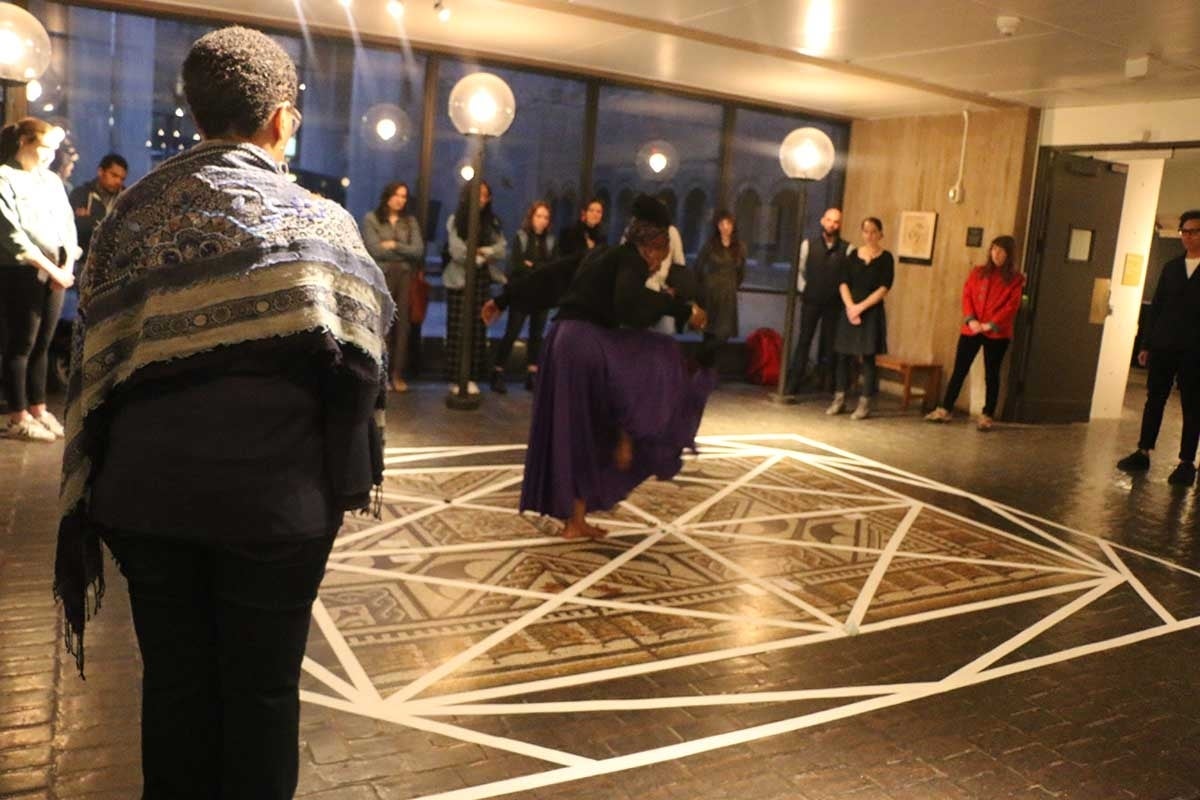
The festival was an interdisciplinary event and garnered support from organizations and departments across campus, including the Center for Experimental Ethnography, the Annenberg School for Communication, Graduate School of Education, GAPSA Research Council, Penn Department of Music, Penn Cinema and Media Studies, Center of Africana Studies, Campaign For Community, the Sachs Program for Arts Innovation and the Media, Inequality & Change Center of the Annenberg School of Communication.
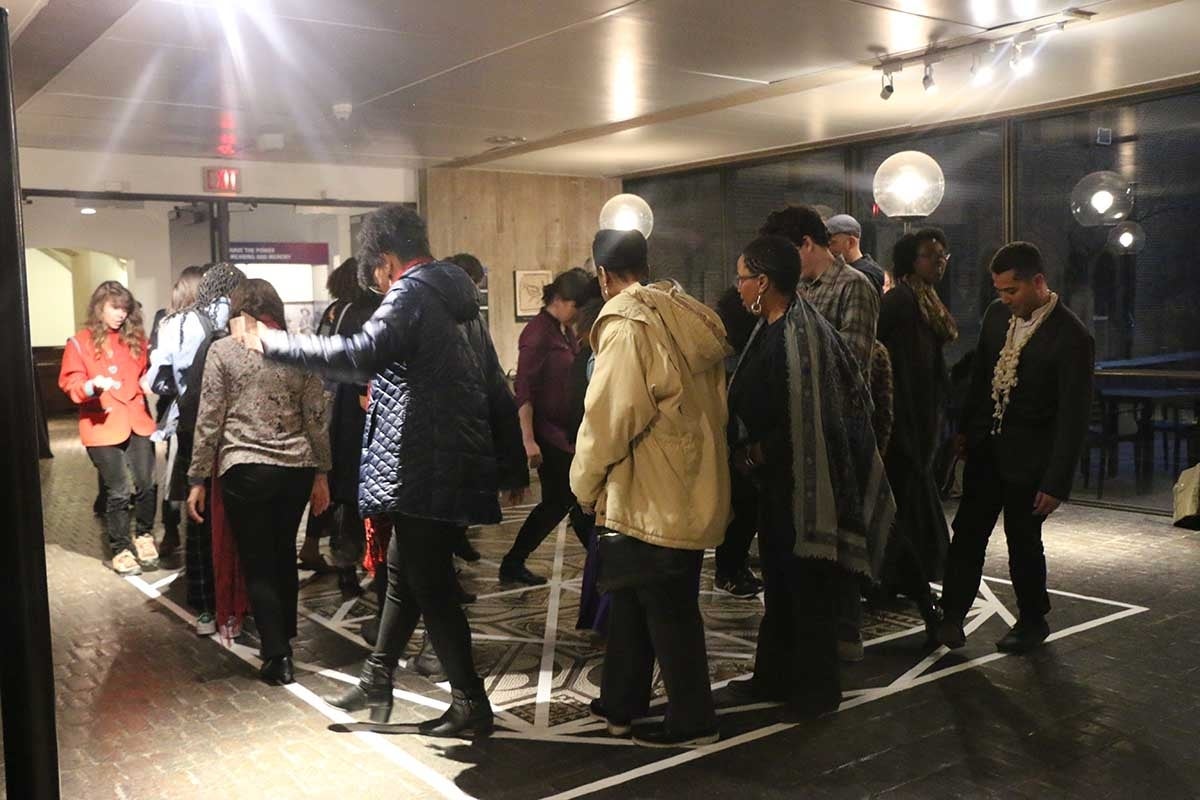
This year’s SSMF was directed by Juan Castrillón, a Ph.D. student in Penn’s Department of Music. CAMRA members include graduate students across programs and departments at the University of Pennsylvania, including the Annenberg School, Anthropology, Graduate School of Education (GSE), Religious Studies, Sociology, School for Social Policy and Practice, and more. The faculty advisors are Walter H. Annenberg Dean John Jackson, Anthropology Professor Deborah Thomas, and GSE Senor Fellow Amit Das.



